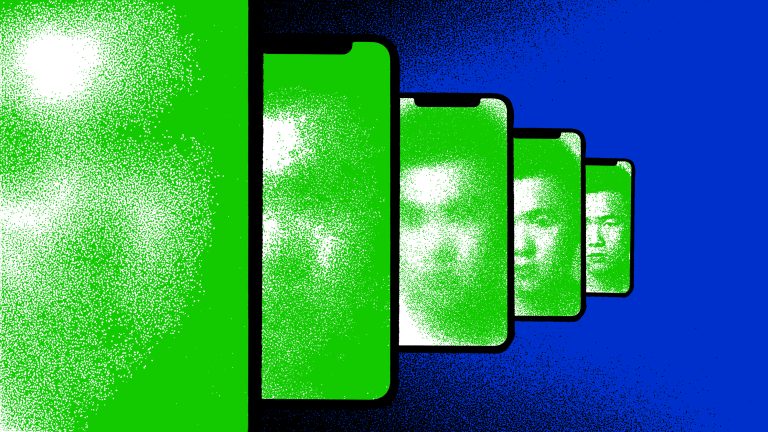On October 23, popular book blogger and writer Tu Pao Ding announced she was leaving Weibo, China’s largest microblogging platform. She’d read rumors online that Weibo planned to introduce a new rule requiring “Big Vs” (verified influencers with large followings) to display their legal name on their public profiles. Using a pseudonym, Tu Pao Ding (which translates to “rabbit butcher”) had shared book reviews and commentary on current affairs with her 2 million Weibo followers for over two decades. “With real-name rules looming, I plan to abandon this platform,” she wrote in a post.
Eight days later, Tu Pao Ding’s fears were confirmed. On October 31, Weibo, as well as several other major Chinese social media platforms including WeChat, Douyin, Zhihu, XiaohongshuXiaohongshuXiaohongshu, which translates to “little red book” in Chinese, is a lifestyle e-commerce and social media platform.READ MORE, and Kuaishou, announced that they now required popular users’ legal names to be made visible to the public. Weibo stated in a public post that the new rule would first apply to all users with over 1 million followers, then to those with over 500,000.
Chinese social media users expressed criticism and concern over the new rule, with many saying it would violate user privacy, enable toxic online behaviors like doxxing and harassment, and limit the diversity of voices on the Chinese internet. Several famous online influencers, such as science blogger Ming Yu Zhui Ran, have decided to remove some of their followers to avoid making their identity public. Others, such as rapper Kindergarten Killer, have decided to delete their social media accounts altogether. (While Tu Pao Ding is still active on Weibo, her follower count was down to 219,700 at the time of publication.)
When Cathy Zhang, a 33-year-old lifestyle blogger based in Shanghai, first saw a screenshot announcing Weibo’s new policy, she dismissed it as fake news. “It went against common sense, stripping away all anonymity from social media,” she told Rest of World. But the next day, she realized it was real: Weibo CEO Wang Gaofei’s profile now showed his real name and occupation, “mobile internet analyst.”
With a Weibo following of more than 35,000, Zhang has posted about wellness, and occasionally gender issues, on the platform for over 10 years, relying on her account to support herself financially. She has never posted her full name or identity online, which has partially shielded her from the hateful messages she often receives from online trolls. Although Zhang does not have enough followers to be affected by the new rule, she is worried. “I feel like I’ve just barely dodged a bullet,” she said. Zhang now plans to proactively qingfen, or “purge fans.” The term refers to the process of lowering follower counts by blocking inactive followers, bots, and trolls.
Many other influencers are using this strategy to avoid being affected by the new rule. Tianjin Stock King, who posts finance content, removed over 6 million followers overnight, cutting his following from 7 million to just over 900,000. Ken, another Weibo “Big V,” told Rest of World he used the extension Cyber Zombie Cleaner to remove about 20,000 followers over the past month. The software, developed by software engineer Xiao Gu, enables users to remove inactive followers in large numbers, and has accumulated over 100,000 views on China’s code-sharing forum, CSDN.
An executive at an influencer agency in Beijing, who preferred to remain anonymous for fear of repercussions from authorities, told Rest of World he is worried that many influencers will lose money and visibility as a result of the new rule. “Many are choosing to remain silent for now, waiting to see how the policy will be enforced,” he said.
“I feel like I’ve just barely dodged a bullet.”
Min Jiang, a professor of communication studies at the University of North Carolina at Charlotte, told Rest of World the real-name rule would limit the influence of key opinion leaders, who still wield a lot of power on the Chinese internet. “Outspoken individuals have been conditioned to navigate the red line with ingenuity and creativity, steering public opinions even under heavy censorship,” she said.
Eric Liu, a former Weibo censor and currently a U.S-based editor with China Digital Times, told Rest of World the new policies are likely in response to directives from the Cyberspace Administration of China (CAC), the nation’s internet regulator. In recent years, the CAC has introduced several policies regulating anonymity on Chinese social media platforms: In 2017, it mandated Weibo users to register with their real name; last year, it required users to show their IP location next to their username.
According to Jiang, the new policy could have a chilling effect on Weibo’s most-followed users. But given existing real-name registration policies, it is not government repression that they fear, but rather the scrutiny of other users, she said. “The new regulation will force people to align their online identity with their offline identity, making it more difficult to express controversial opinions.”
The new rule is another tool to silence outspoken online influencers by threatening to reveal their identities to the public, according to Liu. He said the updated policy will lead to increased surveillance of Weibo opinion leaders who work at state-affiliated organizations, schools, and workplaces, for perceived disloyalty or lack of patriotism.
“This policy will put many critical voices, already precarious, at further danger,” Liu said.



